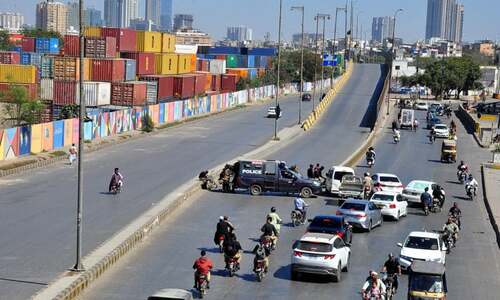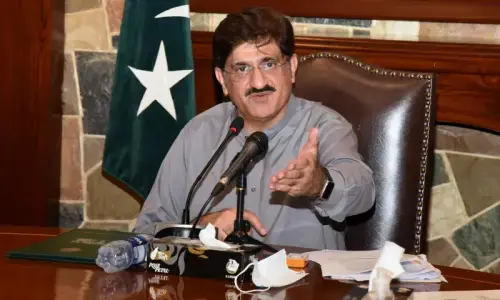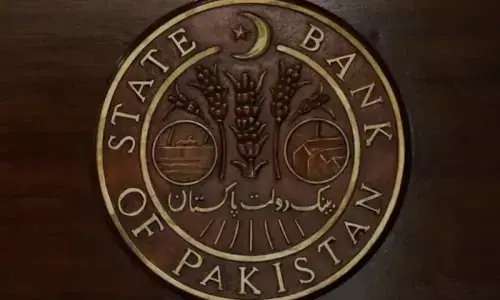KARACHI, Aug 15: Health authorities on Wednesday confirmed an outbreak of human immunodeficiency virus (HIV) infection in drug-using street children registered with a non-governmental organisation for detoxification at its residential treatment centre in Malir.
Senior staffers of the Sindh Aids Control Programme (SACP) said that six of the 10 street children whose blood samples were found reactive on Rapid HIV testing conducted about five months back had tested positive for HIV on enzyme-linked-immunosorbent serologic assay (ELISA) also while laboratory results of the other four children were awaited.
Relevant officials of the SACP, Community Home-Based Care (CHBC) and the United Nations Children's Fund have already been taken on board not only to assist the NGO — Alleviate Addiction Suffering (AAS) Trust — and guide the management of the HIV-infected street children but also to devise a check to protect other such children, SACP manager Dr Arshad Mahmood told Dawn.
An AAS coordinator said the children, largely beggars, were picked by the NGO’s field staff at different hotspots in the city for its two-stage detoxification and rehabilitation programme. Interviews of the children who had sought voluntary HIV counseling revealed that they had either been using contaminated needles or were sexually abused by infected men, the coordinator said, adding that the situation was alarming as 38.5 per cent of the 26 screened for HIV had been declared positive by the designated government laboratory.
An SACP official, referring to some proposition that at least 90 per cent of those found positive through rapid test were finally confirmed HIV positive on ELISA as well, said the rate of positive cases among the street children would increase further.
Sindh, considered to have concentrated HIV epidemics involving injecting drug users and sex workers, is now required to include the street children in the HIV surveillance field activities and networking, said the official.
When contacted, Fauzia Pesnani of the AAS Trust said that from July 2010 to June 2012 her NGO screened about 100 street children, of whom 17 were tested reactive for hepatitis B and C. “Our centres started screening the street children for HIV infection in February and tested rapidly, the initial way to know the HIV infection, about 26 children aged from seven to 17 who were enrolled with the NGO for detoxification and other long-term exercises,” she said. She added that so far six of them had been tested at the SACP’s designated facilities, while a former street child, now 20, was working as peer educator at the Malir centre of AAS.
The children were brought from Machhar Colony, Korangi, Nazimabad, Federal B Area and Saddar. “We, particularly the staff handling the children, were shocked by the results,” she said, adding that the SACP was also requested to educate and train the terrified staff about handling the HIV-infected children with other street children.
Replying to a question, she said two of the children found HIV infected were living at the AAS centre and the others, too, were in contact with it. The parents had also been taken into confidence regarding their further detoxification, medication and rehabilitation.
She said street children were among the vulnerable population exposed to multiple physical and psychological hazards due to their lifestyles, living conditions and socioeconomic characteristics. They could be defined as those living in streets either to earn money for their parents, or were annoyed at home or condemned to beg or pick garbage.
Dr Munawar Khan, coordinator of the SACP, who trains the AAS staff and others at its Malir centre, said that when children learned that they had tested positive, they became harsh saying they had fallen prey to criminals and knew where the virus had come from. They even threatened to avenge for the crime committed on them.
He said a Unicef team on child protection and HIV specialists had already visited AAS to provide guidelines on counselling and imparting skills to the children and others, in addition to providing support to the NGO for the HIV-positive street children.
Dr Suleman Otho of the CHBC, a regional Global Fund R9 grant initiative, said his team had already started taking care of the children to ensure follow-ups, medicines and treatment, their pick and drop facility, schooling and food.
































